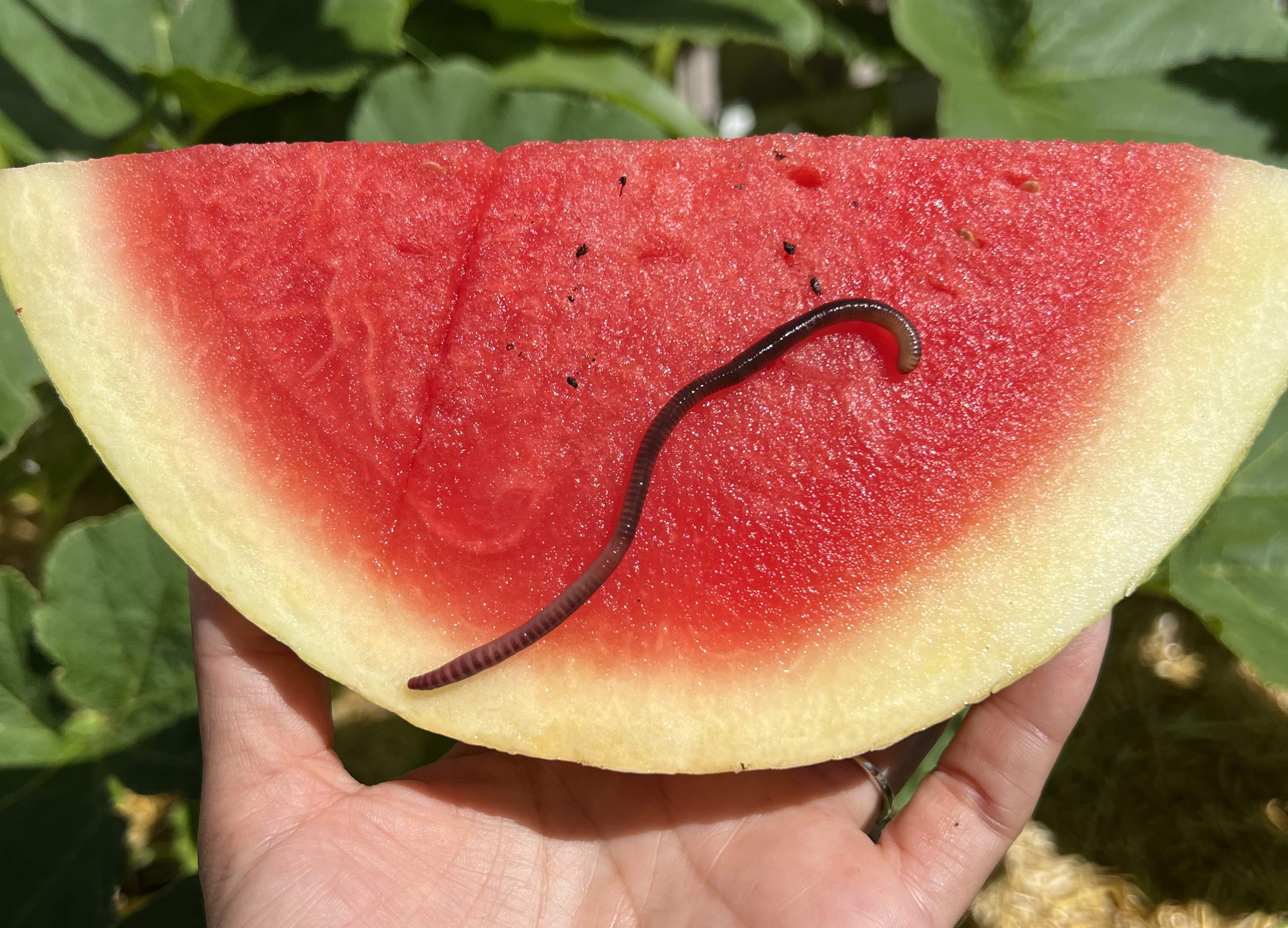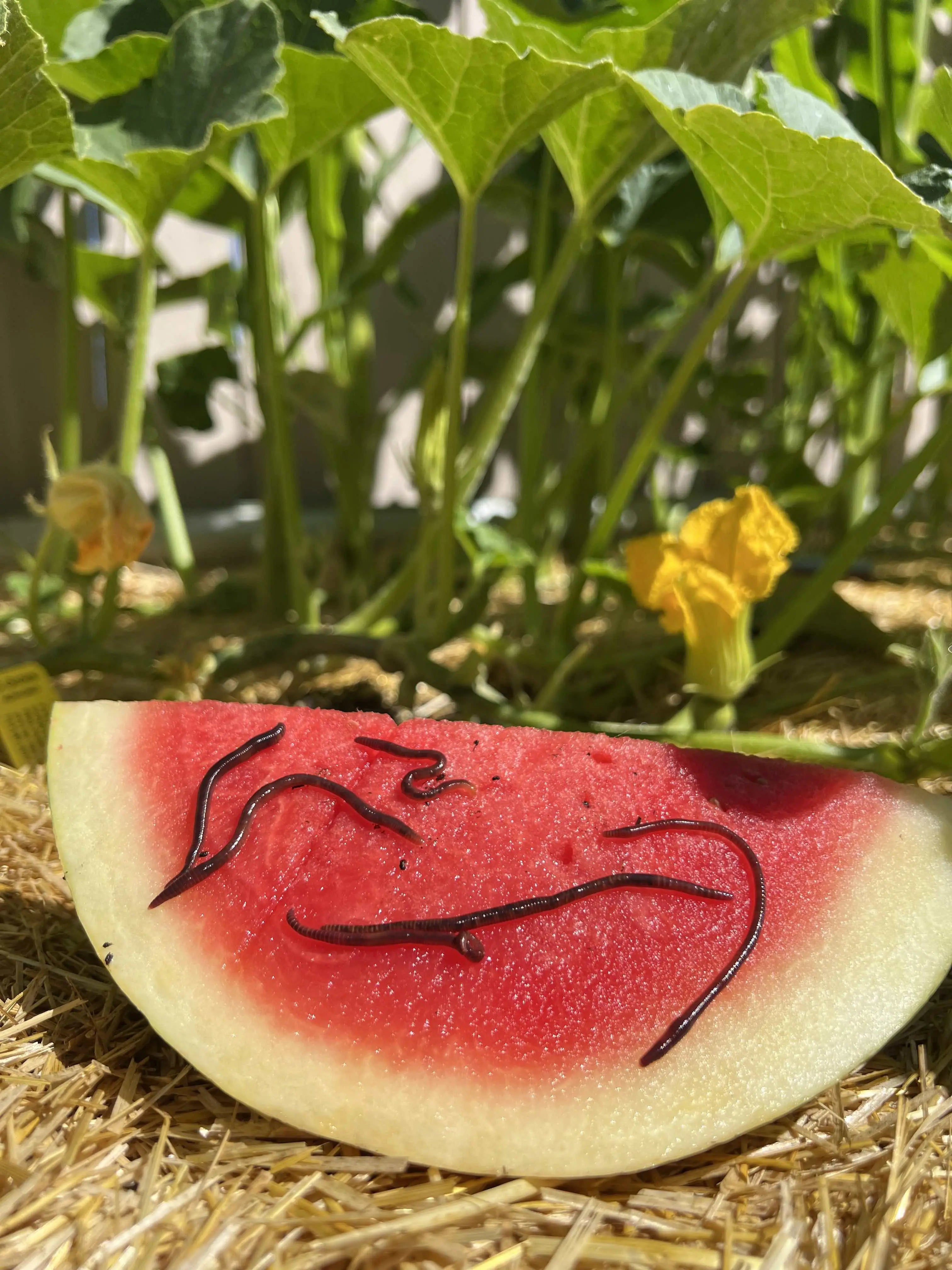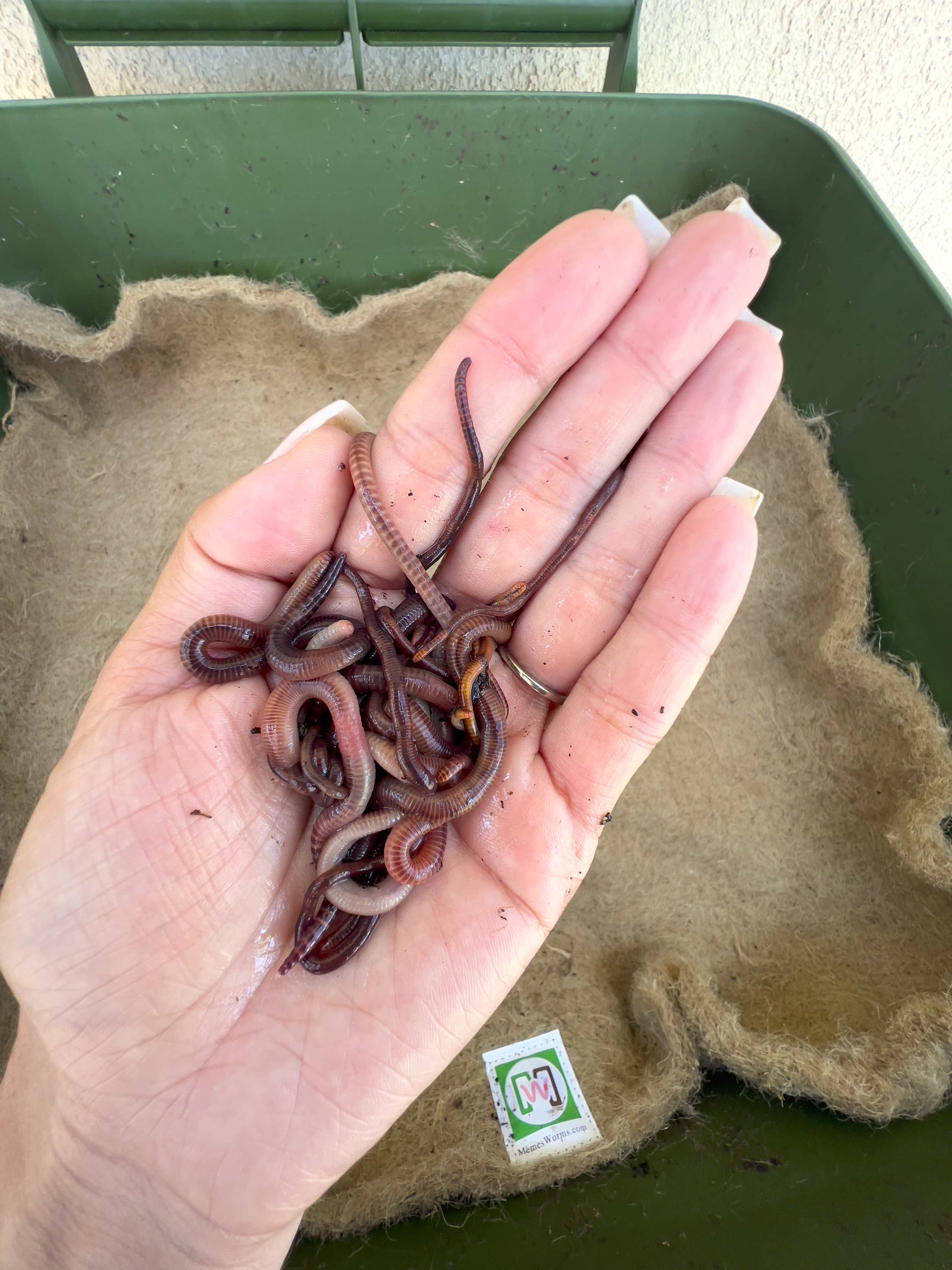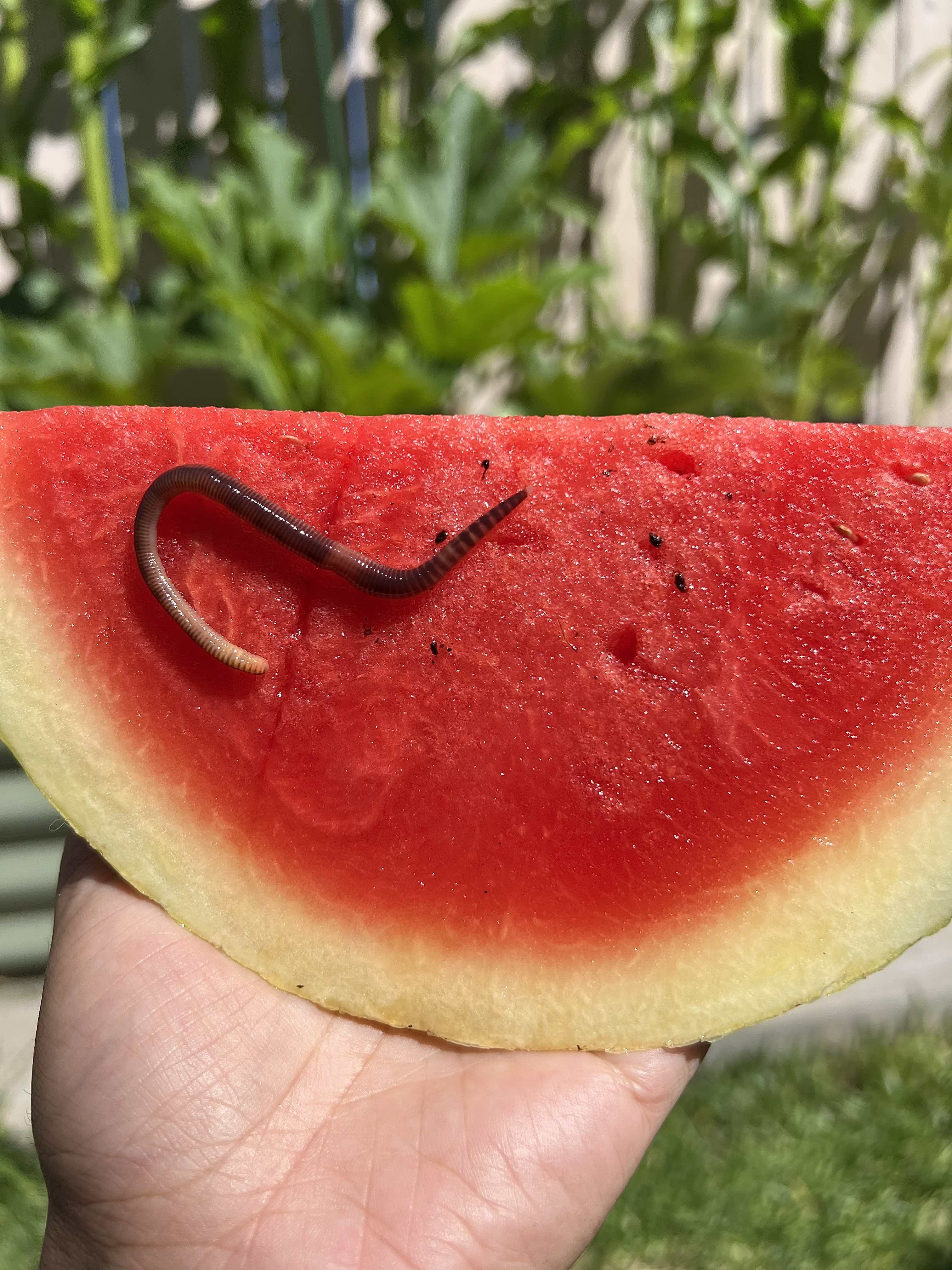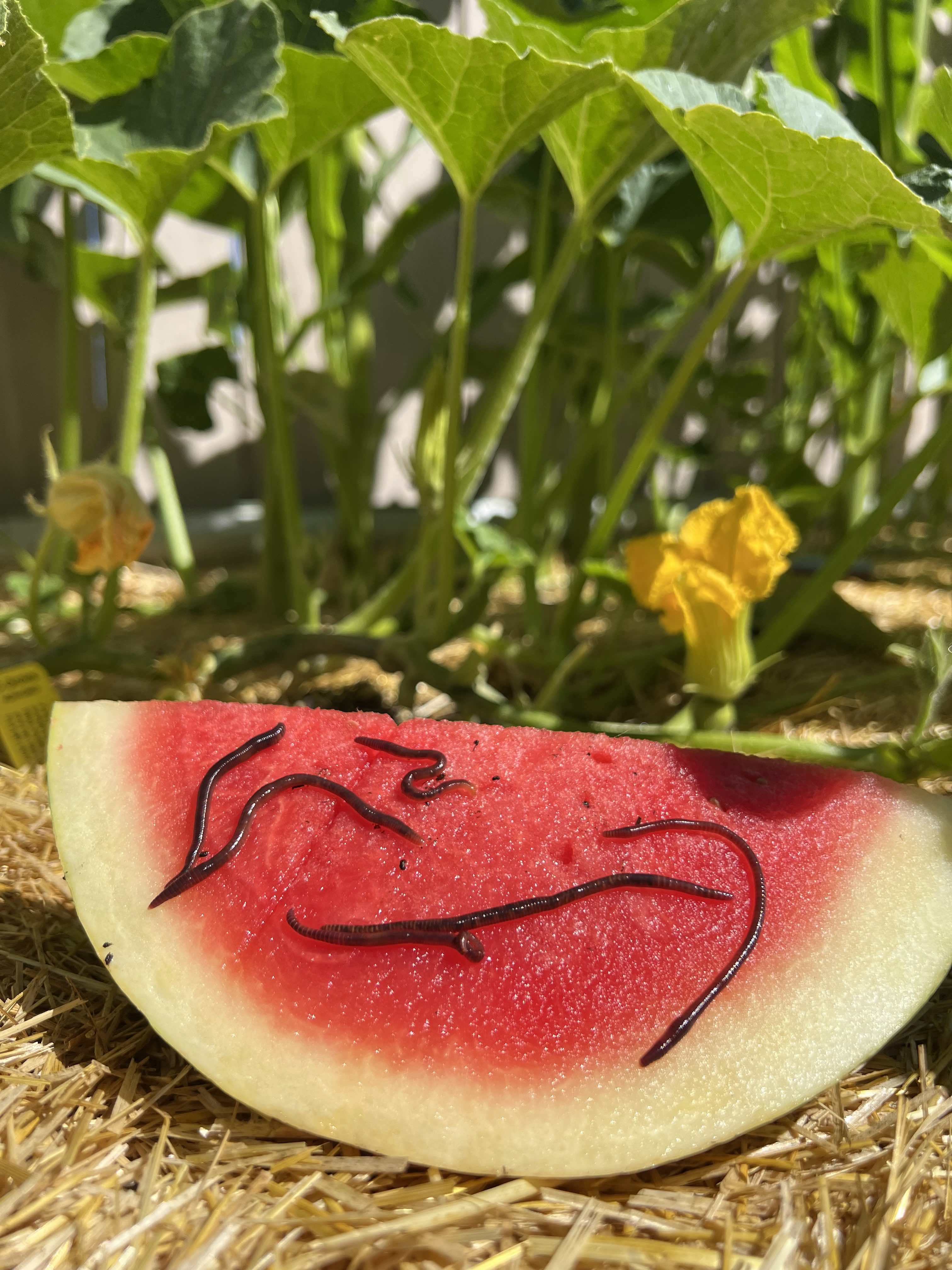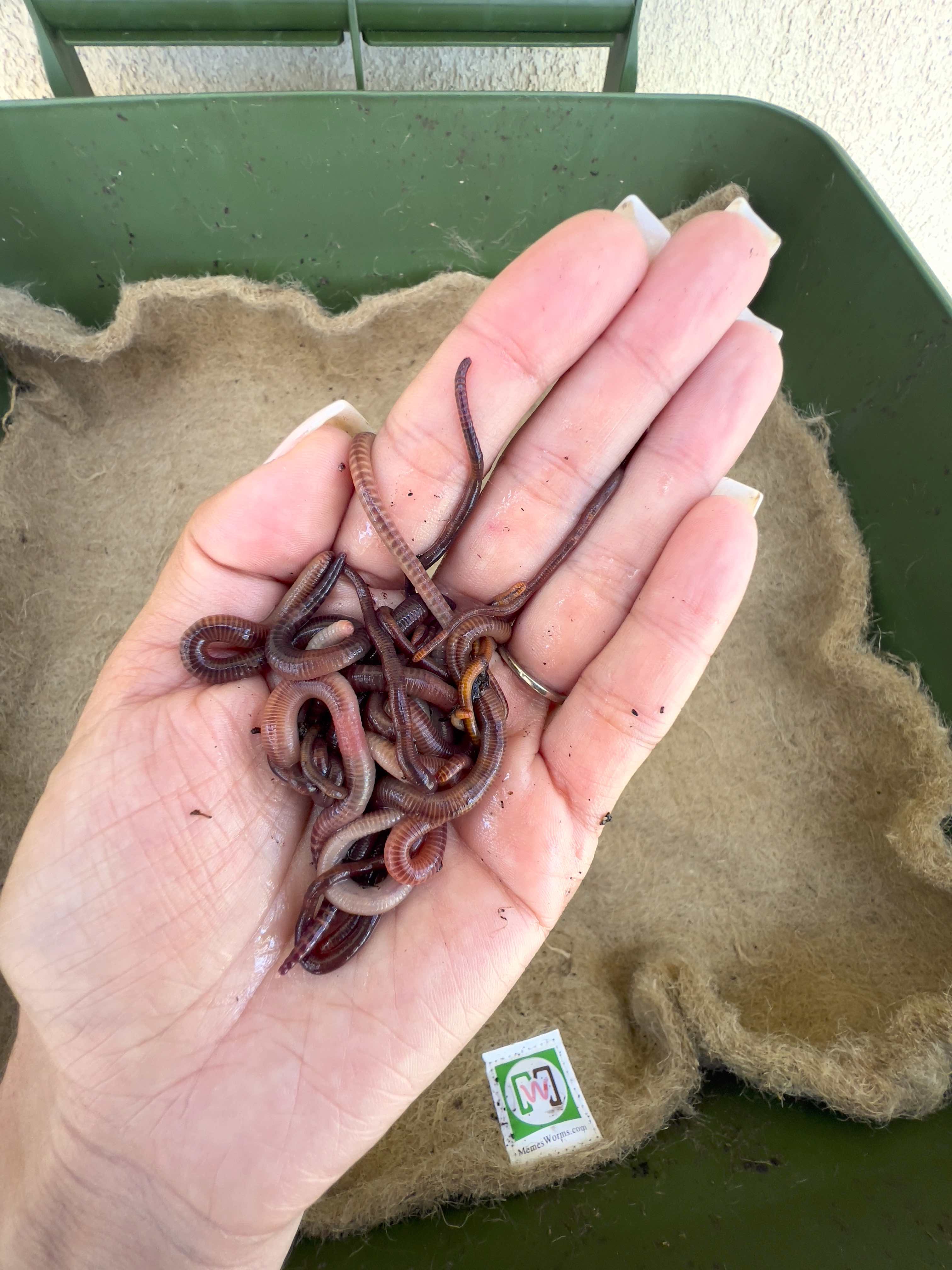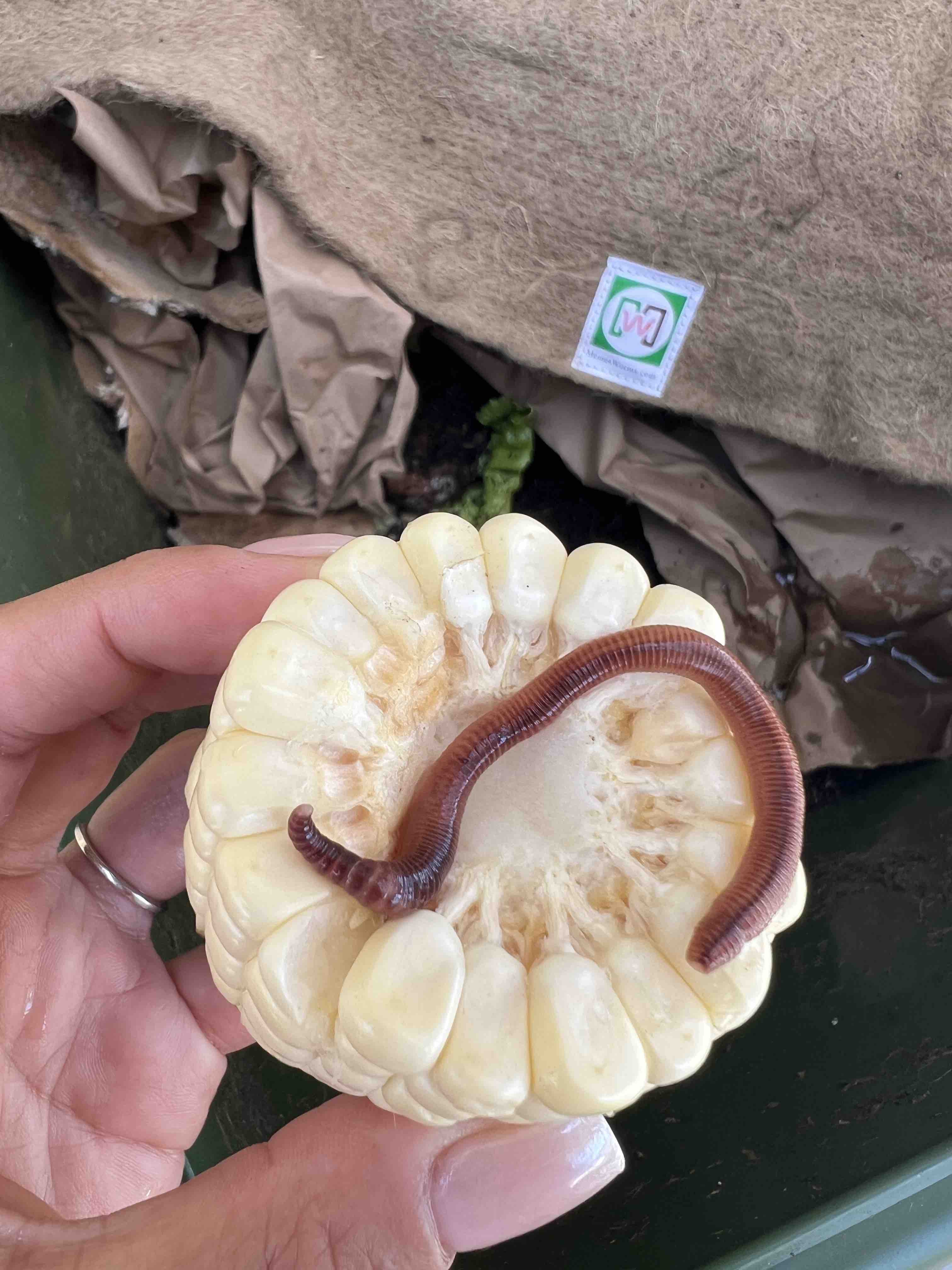Composting & Garden Soil Health
The average American throws away 290-365 pounds of food waste per person, per year. Vermicomposting (aka Worm Composting) is an easy way to turn waste into nutrient-rich soil for your vegetable or flower garden. Adding worms to your garden is also a great way to improve aeration and soil health.
Composting For Beginners
Starting a worm compost is a sustainable method to recycle food and organic waste into nutrient-rich soil. Beginning is easy:
- Select a proper-sized worm bin for the amount of daily waste created.
- Choose the Pure Red Wigglers and add a worm blanket to create airflow and coco coir to absorb and retain moisture.
- Feed your worms! They can be fed with fruit and vegetable scraps, coffee grounds, and other organic materials, but avoid adding citrus, dairy, or meat as these can harm the worms or create unpleasant odors.
- Keep the bin in a location with moderate temperatures, avoiding extreme heat or cold. Ensure the bin is moist but not overly wet to create a conducive environment for the worms to thrive.
- Aerate the compost by gently mixing the compost 1-2 times a month and adding a layer of coco coir every 4-6 months.
- Harvest your soil every few months for use as a natural soil fertilizer in your garden.
Composting For The Advanced
Advanced composters often focus on optimizing and refining the composting process to achieve higher-quality compost in a shorter time frame. They use specific techniques to manage and enhance the decomposition process effectively. Here are some steps that advanced composters can take to optimize their compost:
- Testing: Regularly test the compost to check the nutrient content and adjust the materials added to optimize its nutritional value.
- pH Levels: Monitor and maintain the appropriate pH levels to ensure an optimal environment for decomposition.
- Material Diversity: Use a diverse range of materials to achieve a balanced carbon to nitrogen ratio for quicker decomposition and richer compost.
- Pre-Treatment: Consider pre-treating materials, like shredding and soaking, to speed up the decomposition process.
- Worm Variety: Experiment with different types of worms, such as a Mix or European Nightcrawlers to increase the efficiency of vermicomposting.
- Feeding Regimen: Optimize the worm’s feeding regimen to maximize their composting ability.
Worms For Garden Soil
Adding a worm mix to a garden significantly enhances soil health and plant growth. They create tunnels, promoting soil aeration and water infiltration, leading to improved root development and plant health. The decomposition of organic matter by worms results in nutrient-rich castings, a natural fertilizer that increases nutrient availability and soil fertility. Worm activity also aids in forming soil aggregates, which improves soil structure, water retention, and reduces erosion. Additionally, the beneficial microbes found in worm castings help suppress plant diseases, boosting plant immunity. Overall, worms contribute to garden biodiversity and ecosystem balance, making them invaluable for sustainable gardening.
Our Worms
New to composting? Start with the Pure Red Wigglers. They are the easiest, most flexible worms to manage in most climates.
What's the difference between worms?
Climate preference and speed of processing waste are different between worm species.
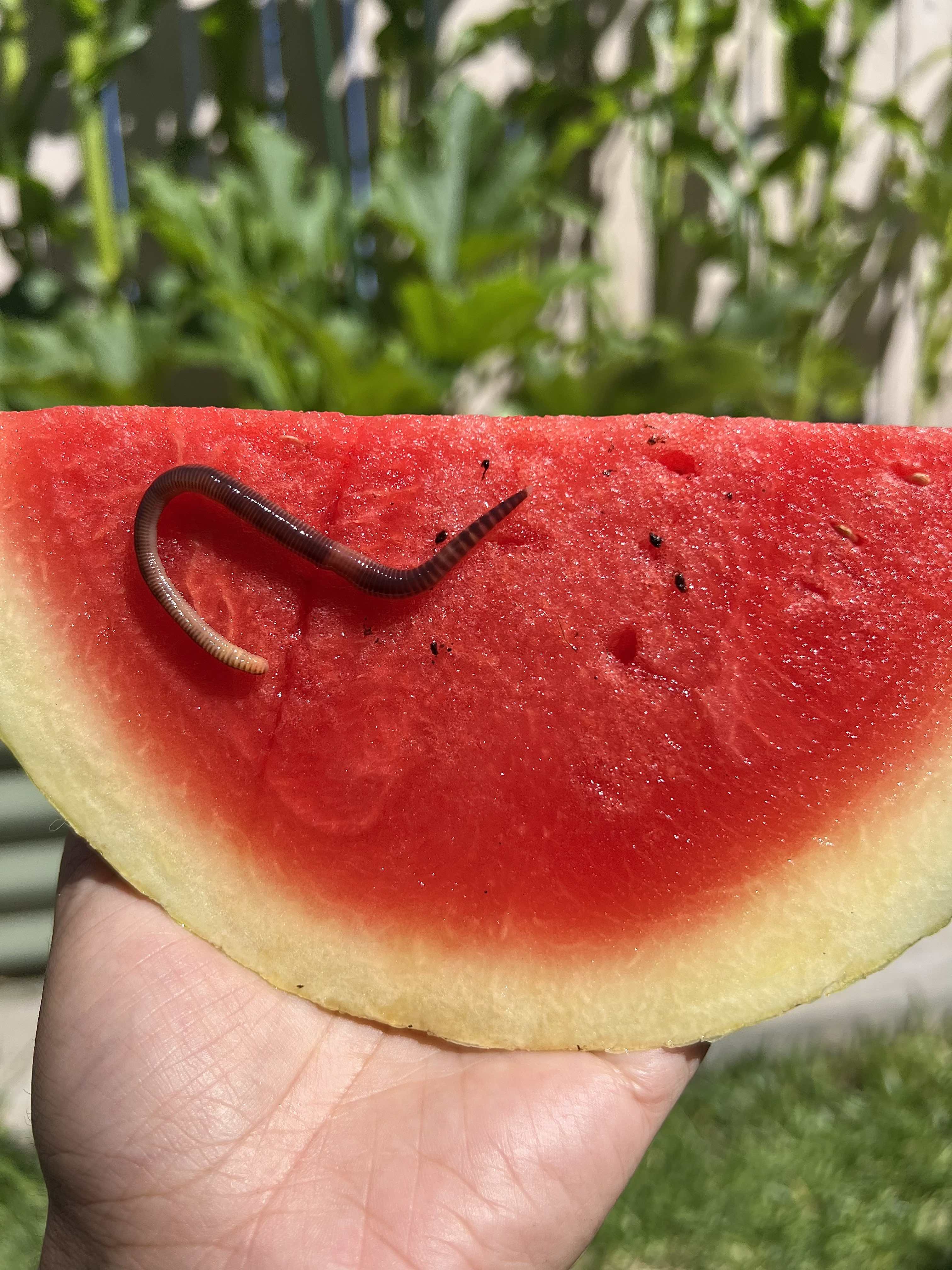
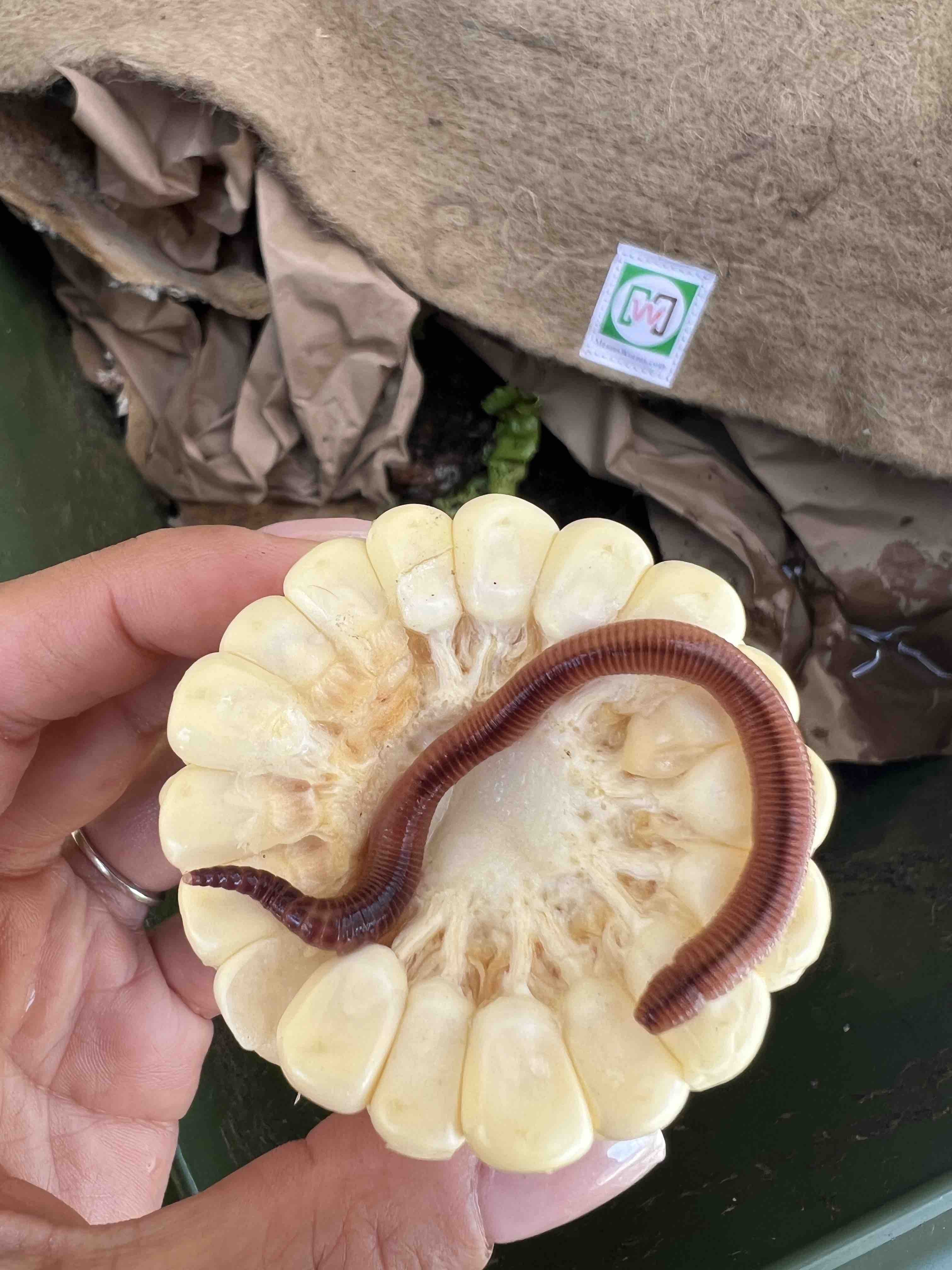
Prefers 55° to 77°F, will tolerate 40° to 90°F
Prefers 60° to 70°F, will tolerate 45° to 80°F
Middle layer
Bottom/Deep Layer
Quick growth, leading to a larger population.
Slower growth compared to Red Wigglers.
Efficient in breaking down food waste and organic materials.
Highly effective in processing organic waste, but at a slower rate than Red Wigglers.
Most popular worm for composting and gardens.
They are larger in size compared to Red Wigglers.
Our Worm Species'
Red Wigglers
Red wiggler worms (Eisenia fetida) offer a sustainable way to reduce organic waste. Red Wigglers are especially effective at breaking down organic material producing nutrient-rich compost for healthier soil. They are the easiest worms for beginners to work with.
European Nightcrawlers
European Nightcrawlers are worms popular for their ability to convert organic material into enriched compost. Their excellent nutrient-rich makeup helps plants grow stronger and healthier. An ideal worm for organic fertilization, these worms also make for a great fishing bait.
Indian Blues
Indian Blue Worms, also known as Perionyx Excavatus, are a species of earthworms native to India and other tropical regions. These worms are extremely resilient and able to withstand a wide range of environmental conditions, making them an excellent choice for composting and other bioremediation activities.
FAQ
Common questions about composting worms
What are the best worms to start with for composting or gardening?
If you're new to composting or gardening with worms, the best worms to start with are typically Red Wigglers (Eisenia Fetida) and European Nightcrawlers.
Red Wigglers: Known for their voracious appetite and efficiency in breaking down organic matter, Red Wigglers are a top choice for composting. They thrive in compost bins and piles, turning kitchen scraps into valuable compost. They are also tolerant of a wide range of conditions, making them beginner-friendly.
European Nightcrawlers: These worms are larger and burrow deeper into the soil, making them excellent for soil aeration and drainage. They are also great for composting and can be used as fishing bait. European Nightcrawlers are resilient and adapt well to various environments.
Worm Starter Colony Mix: If you're looking to diversify your composting system, a Worm Starter Colony Mix that includes Red Wigglers, European Nightcrawlers, and Indian Blues can be an excellent choice. This mix offers a balanced ecosystem and can enhance the composting process.
Starting with these worms can provide a successful and rewarding composting or gardening experience. They offer various benefits to soil health and plant growth.
If you have any specific needs or further questions, don't hesitate to reach out!
What are garden worms and how do they differ from earthworms?
Garden worms and earthworms are terms that are often used interchangeably, but they can refer to different types of worms with distinct characteristics.
Garden Worms: Garden worms typically refer to specific species of earthworms that are commonly found in garden soil. These worms, such as the Red Wigglers (Eisenia Fetida), are prized by gardeners for their ability to break down organic matter quickly and enrich the soil with nutrients. They are surface dwellers and usually found in the top layers of soil, compost piles, or decaying organic matter.
Earthworms: Earthworms is a broader term that encompasses various species of worms that live in the soil, including garden worms. Some earthworms, like the European Nightcrawlers, burrow deeper into the soil and help with soil aeration and drainage. They play a vital role in maintaining soil health by recycling nutrients and enhancing soil structure.
In summary, while all garden worms are earthworms, not all earthworms are considered garden worms. The specific role and behavior of the worms may vary depending on the species and their habitat within the soil ecosystem.
If you have any more questions or need further clarification, feel free to ask!
Can I talk to someone at Meme's Worms for assistance?
Absolutely! You can talk directly with Meme at (229) 507-0203 to have all your questions answered. Whether you're a seasoned vermiculture pro or a newbie to worms, we're here to help.

